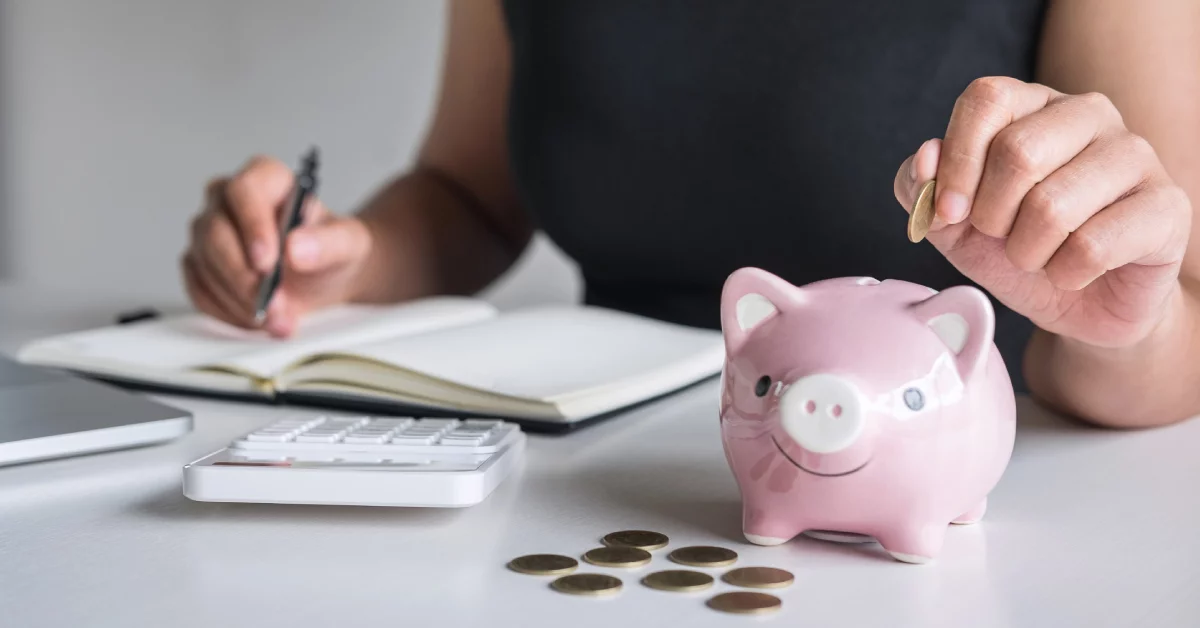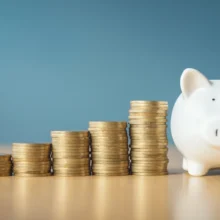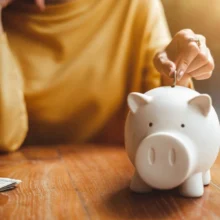HOW TO LIVE FRUGALLY WITHOUT FEELING POOR
Last Updated on 06/07/2025 by Admin
THE DIFFERENCE BETWEEN BEING FRUGAL AND BEING DEPRIVED
Living frugally doesn’t mean living without joy, comfort, or style. The key difference lies in mindset. Frugality is a conscious choice to spend smarter, not necessarily less. It’s about prioritizing value over cost and deciding what truly matters. Being poor, on the other hand, is often about limitations imposed by circumstance, not choice.
I used to think frugal living meant cutting out all the little joys—no morning coffee runs, no new clothes, no spontaneous weekend getaways. But then I realized that being intentional with my money didn’t have to feel restrictive. It just meant shifting how I spent, not stopping altogether.
SMALL CHOICES, BIG IMPACT
One of the most powerful ways to live frugally is to focus on small, everyday decisions. I remember switching from brand-name household cleaners to homemade vinegar solutions. The savings were small at first, but over a year, I had saved enough to fund a weekend trip. It felt like magic.
Instead of eating out three times a week, I started cooking more at home. I didn’t stop going out—I just made it more of a treat than a habit. By reframing it as a reward, I actually enjoyed those occasional dinners more.
Frugality doesn’t mean saying “no” to everything. It means saying “yes” to what matters—and letting go of what doesn’t.
INVEST IN QUALITY OVER QUANTITY
One lesson I learned the hard way is that cheap doesn’t always mean smart. I used to buy low-cost shoes and appliances, only to have them break or wear out fast. Eventually, I realized that spending a bit more on quality items actually saved me money in the long run.
Now, I focus on value. I might buy fewer things, but I choose ones that last. A good jacket, a solid laptop, or a reliable pair of boots might seem pricey upfront—but they can save you from repeating the same purchase again and again.
CUTTING COSTS WITHOUT CUTTING HAPPINESS
Living frugally can actually increase your quality of life. When you stop chasing trends or unnecessary luxuries, you create space for what truly makes you happy. For me, that meant spending more time outdoors, starting a small garden, and hosting game nights instead of going to bars.
These changes didn’t just save me money—they added meaning and connection to my life. I started valuing experiences over possessions and relationships over receipts.
PLAN, DON’T PANIC
One of the best frugal habits is learning how to plan. I used to go grocery shopping without a list, buy things impulsively, and toss half of it away by the end of the week. It felt chaotic and wasteful.
Now, I meal plan for the week, track my spending, and set mini savings goals. It’s not about strict budgeting—it’s about awareness. Just knowing where my money is going has made me feel more in control and less stressed.
BE CREATIVE WITH WHAT YOU HAVE
Frugality often sparks creativity. I once reupholstered an old chair instead of buying a new one. It turned out better than I expected—and became a great conversation piece. I’ve also swapped clothes with friends, repurposed glass jars into storage containers, and used old t-shirts as cleaning rags.
These little acts of resourcefulness made me feel proud, not deprived. They reminded me that I didn’t need more stuff—I just needed to see my stuff differently.
DON’T COMPARE YOURSELF TO OTHERS
One trap that can ruin any frugal lifestyle is comparison. It’s tempting to look at others with fancier cars, newer phones, or bigger homes and feel like you’re missing out. But remember: You’re seeing their highlight reel, not their credit card bill.
Frugal living is deeply personal. What works for one person might not work for another. What matters is that you’re making choices that support your goals, values, and well-being.
ENJOY THE FREEDOM THAT COMES WITH LESS
Frugal living isn’t about sacrifice—it’s about freedom. When you’re not tied to debt or trapped by a paycheck-to-paycheck cycle, you get room to breathe. You can save for emergencies, invest in your future, or take time off when you need it.
I once had to take an unexpected two-week break from work for personal reasons. Because I had been living frugally and saving steadily, I didn’t panic. That financial cushion gave me peace of mind—and reminded me why this lifestyle is worth it.
FINAL THOUGHTS: YOU DON’T NEED TO BE RICH TO FEEL RICH
Living frugally doesn’t mean denying yourself joy. It means choosing wisely, spending with intention, and finding happiness beyond material things. When you stop trying to impress others and start focusing on what truly makes you feel alive, everything changes.
You can live well on less—and sometimes, less really is more.







